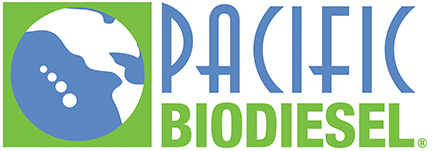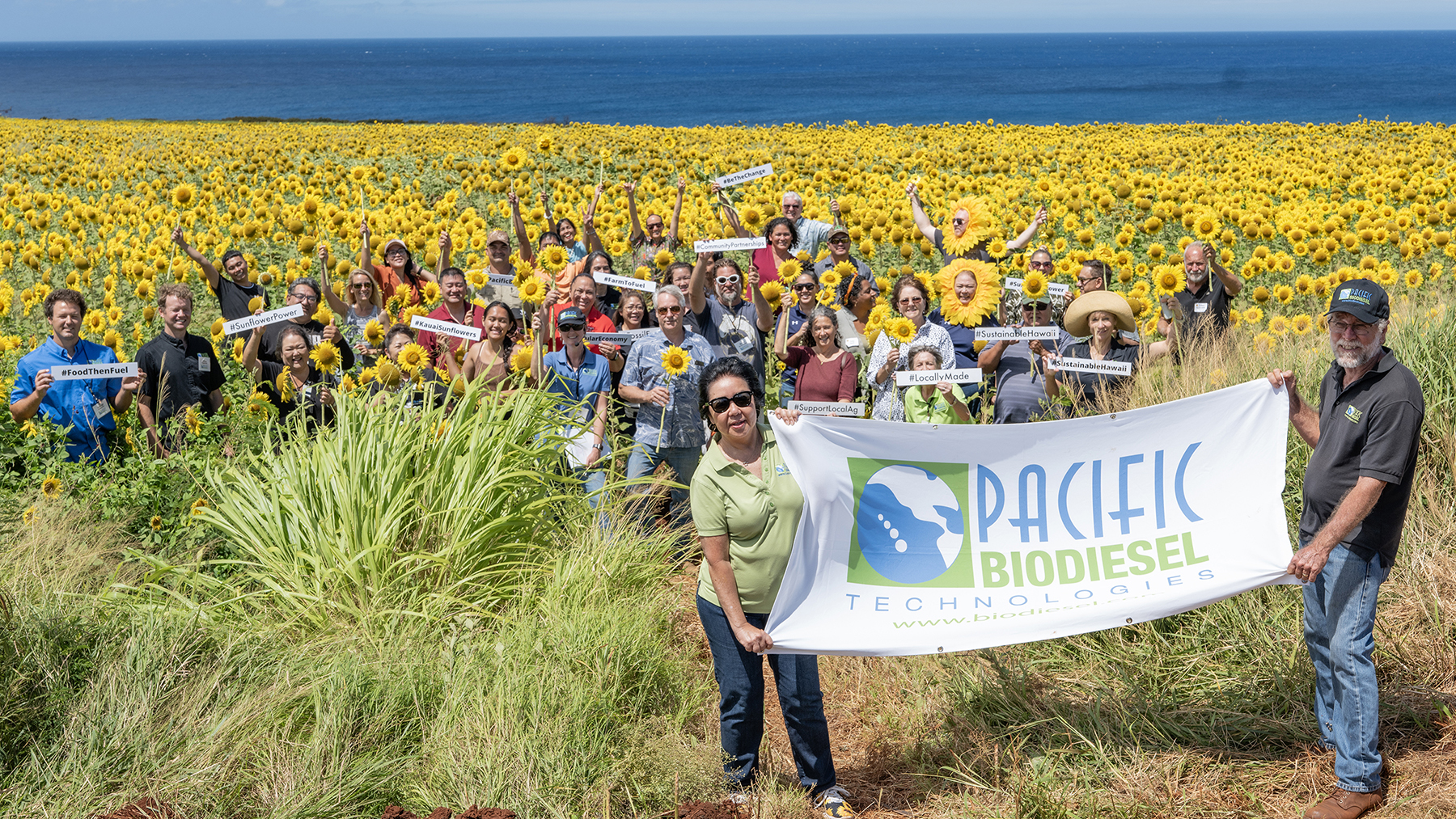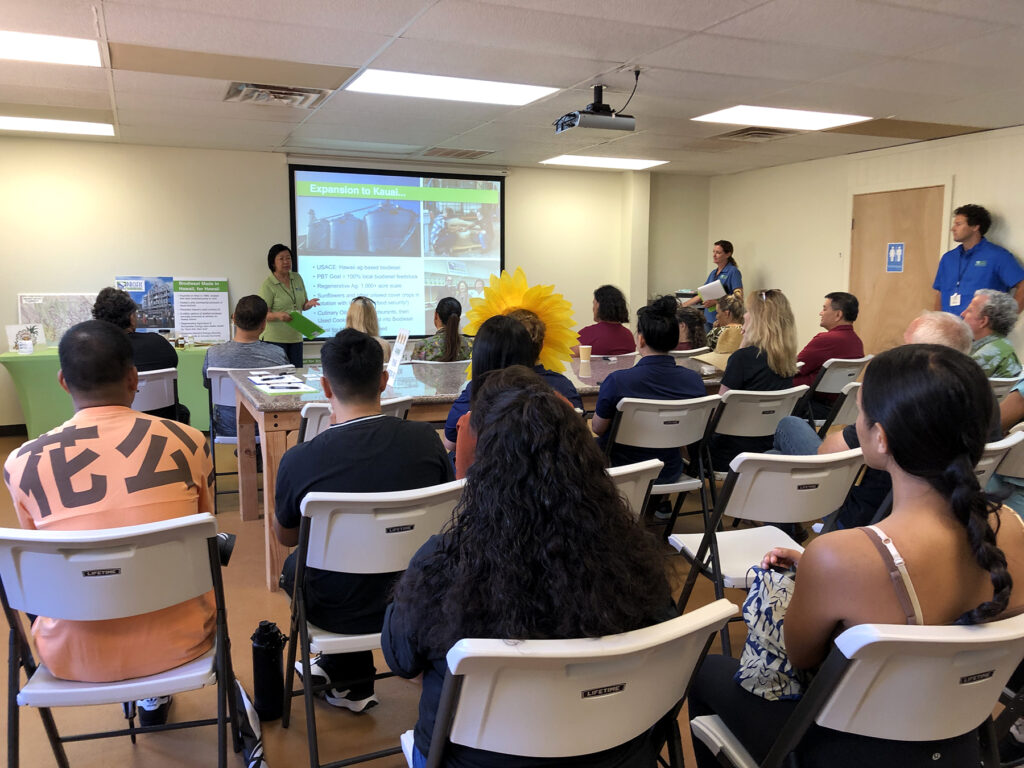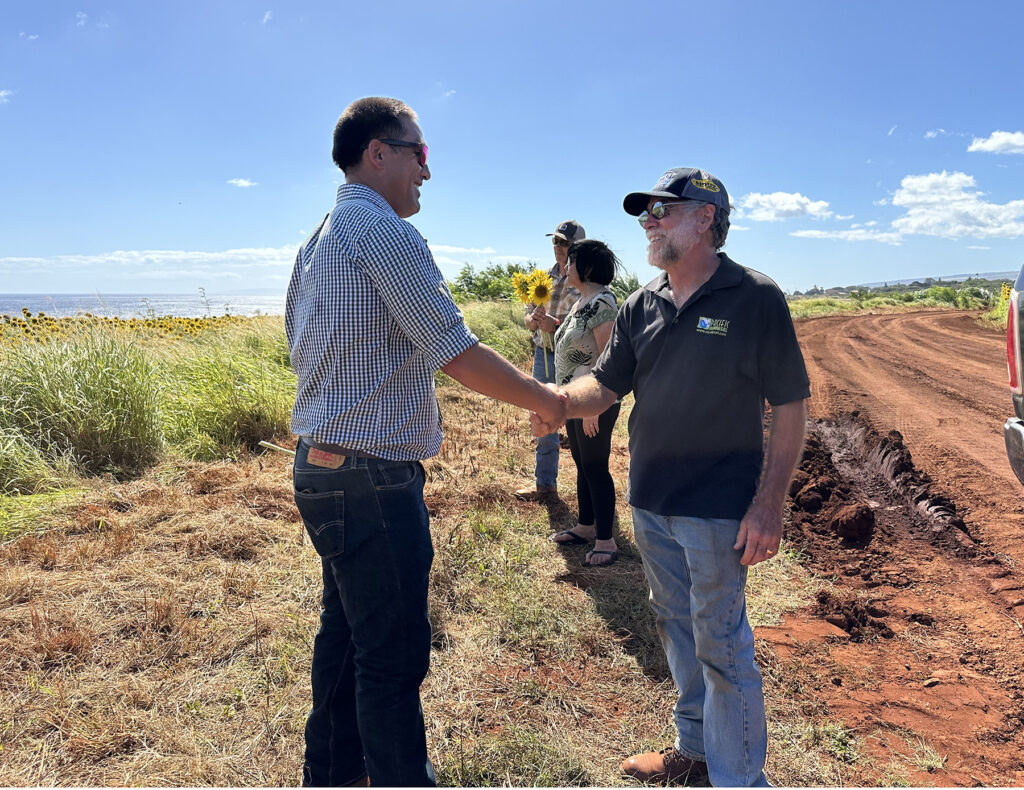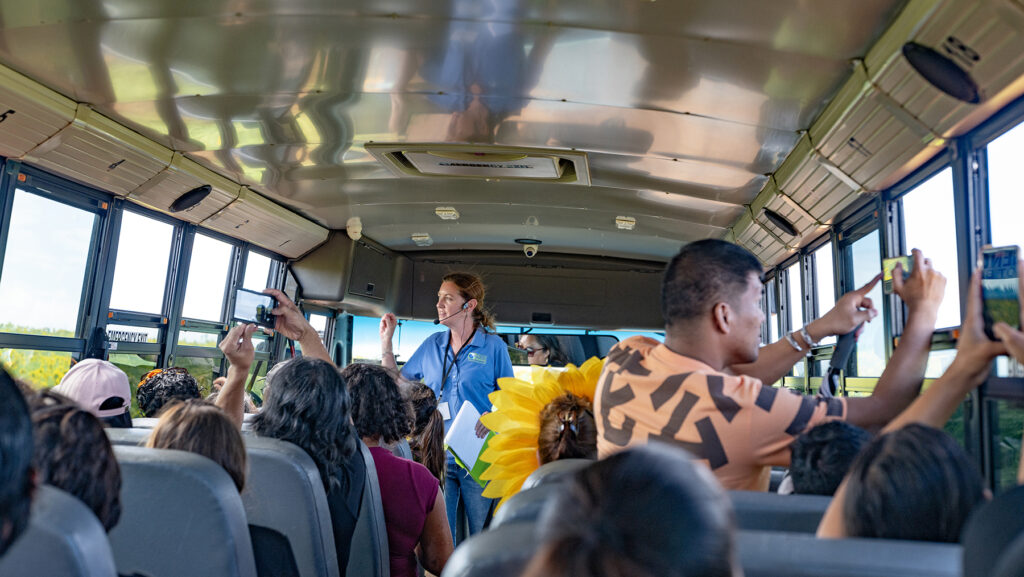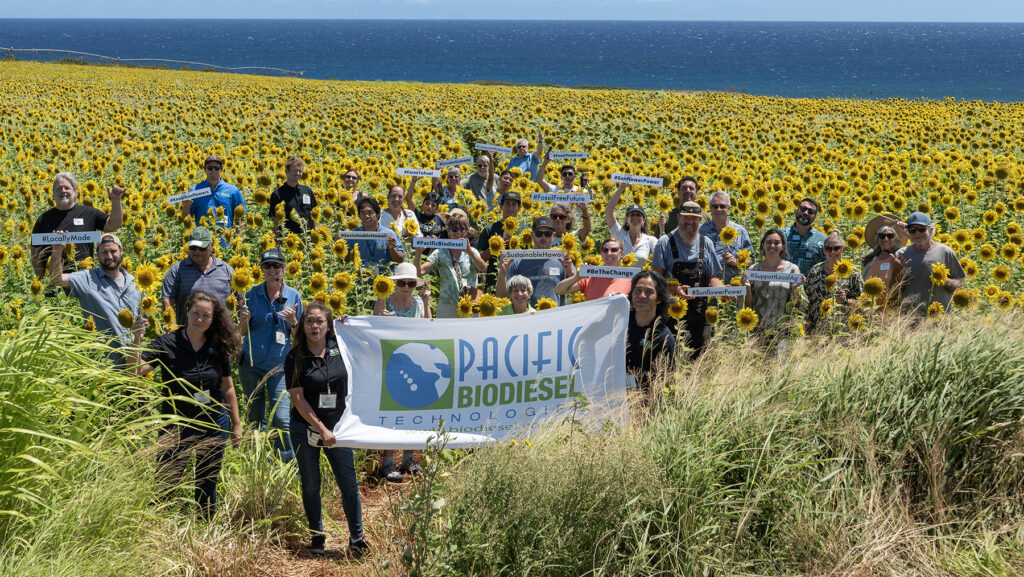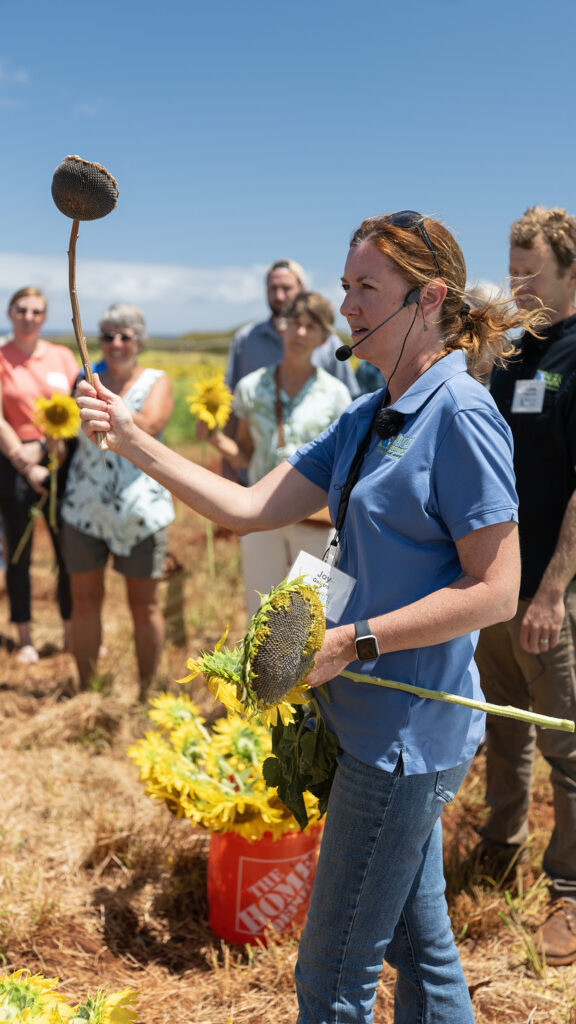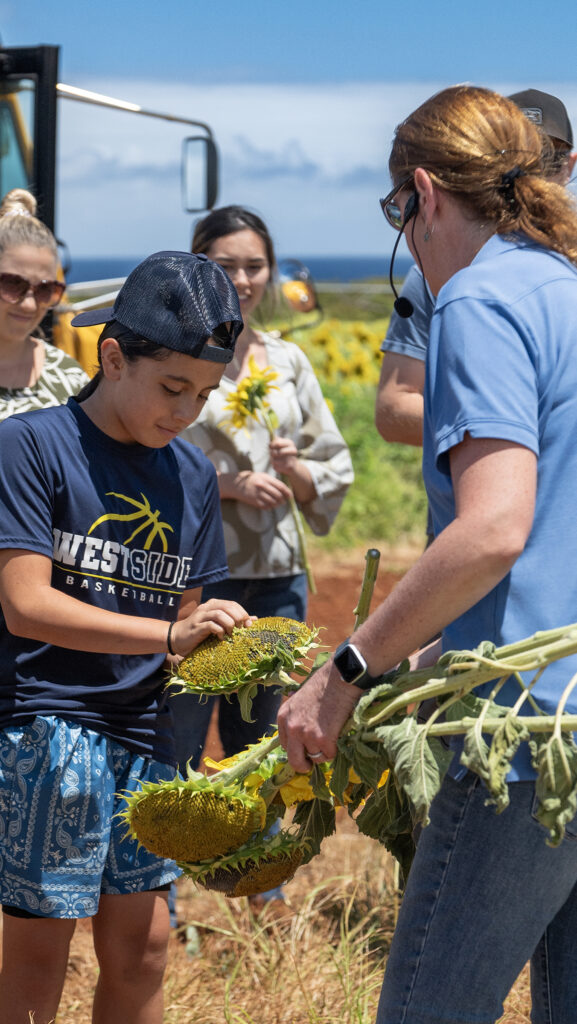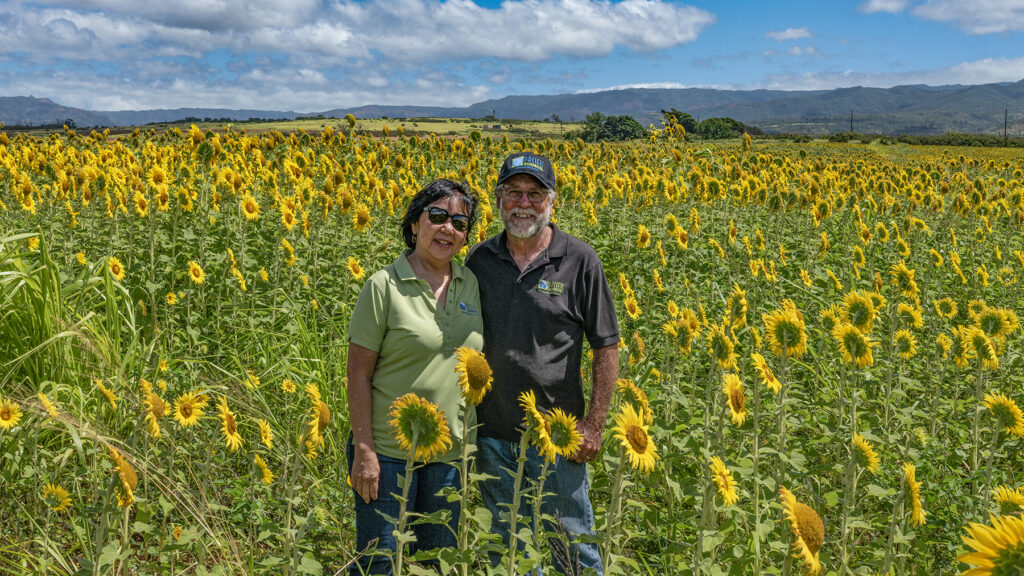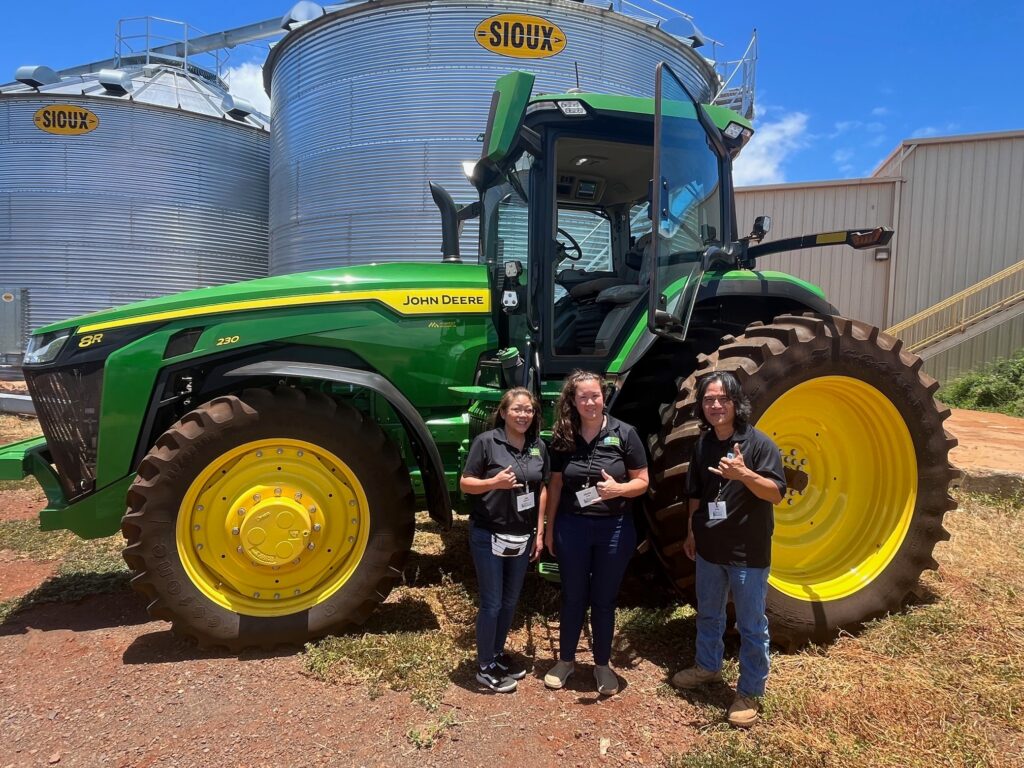KAUMAKANI, HAWAIʻI (July 12, 2024) – The Pacific Biodiesel team welcomed guests for private farm tours on Friday, July 12th at its first field of blooming sunflowers on Kauaʻi – the same 100-acre field where a Blessing was held earlier this year on Earth Day.
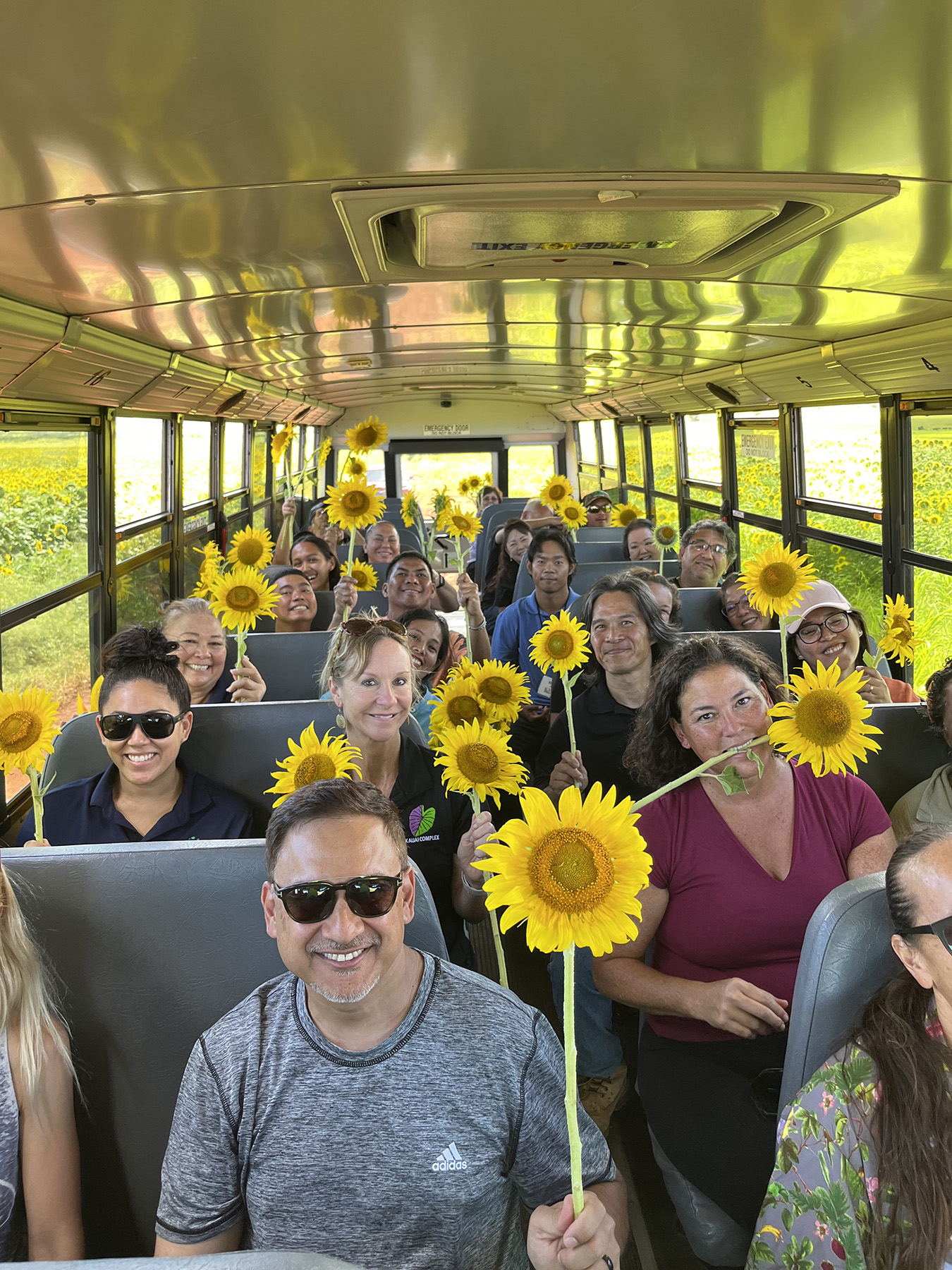
On their way back to the mill, guests showed off their blooms on the school bus shuttle provided by Hawaii Agricultural Foundation.
Local high school students and teachers, biodiesel supporters and the companyʻs culinary oil customers were joined by local business owners and community leaders including Kauaʻi County Mayor Derek Kawakami to learn about Pacific Biodieselʻs renewable fuel and regenerative farming model, part of the company’s expansion of agriculture operations to Kauaʻi announced in January.
The day included tours of the company’s new crushing mill at the Gay & Robinson, Inc. property in Kaumakani, tastings of the company’s locally produced culinary oils and a visit to the 100-acre blooming sunflower field via a school bus shuttle provided by Hawaii Agricultural Foundation.
Hosted by Pacific Biodiesel Co-founders, Bob and Kelly King, the guests learned about the history of the company, which started on Maui in 1995 by recycling used cooking oil from restaurants. As the demand for biodiesel increased and the amount of used cooking oil remained a finite resource, the need for locally farmed feedstock became apparent.
As Kelly King explained, “When it came time for our agriculture operations to increase through regenerative farming of local feedstock for our biodiesel production, community members on Kauaʻi welcomed us with open arms. The leadership team at Gay & Robinson, longtime landowners and one of the last Hawaiʻi sugarcane companies to close its plantation, made it easy for us to get a running start by making available existing warehouse space on their property and access to thousands of acres of land they intend to keep in agriculture.”
Director of Agriculture Operations James Twigg-Smith and Marketing Director Joy Galatro led the day’s tours. Each group had a chance to visit to the field to learn about the life cycle of sunflowers and time for group shots and selfies. With approximately 25,000 sunflowers per acre, the hundred acre field of sunflowers on Kauaʻi featured an estimated 2.5 million blooms.
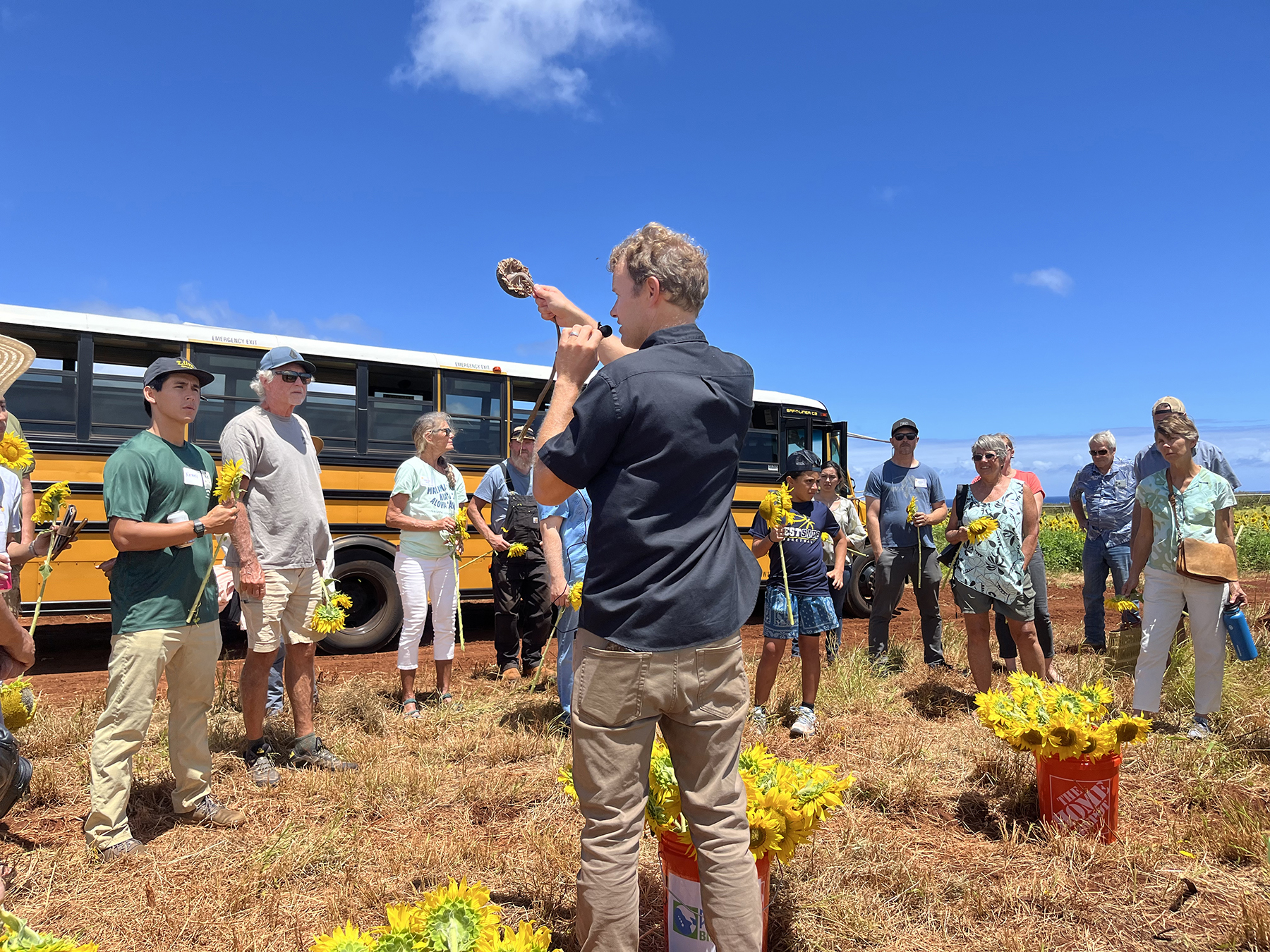
Director of Agriculture Operations James Twigg-Smith explains why sunflowers are a good source of food and feedstock for renewable fuel.
The expansion of agricultural operations on Kauaʻi allows the company’s farming operation to significantly scale up as it farms for food and fuel on 1000+ acres of Gay & Robinson land.
Once the oil is extracted, the remaining material creates a high-protein meal that can be used as animal feed. Pacific Biodiesel uses regenerative agriculture methods with no pesticides, herbicides or GMO crops while all the farm equipment runs on biodiesel.
Each acre of blooms yields approximately one ton of harvested seed, with about 100 tons of the high oil yield seed to be harvested in late summer.
As Twigg-Smith pointed out, “We’ve gone from farming 35-acre fields on Maui to 100 acres here; that’s three times the size. And, our new expeller press is 10 times the capacity of our current model. The expansion here is really exciting.”
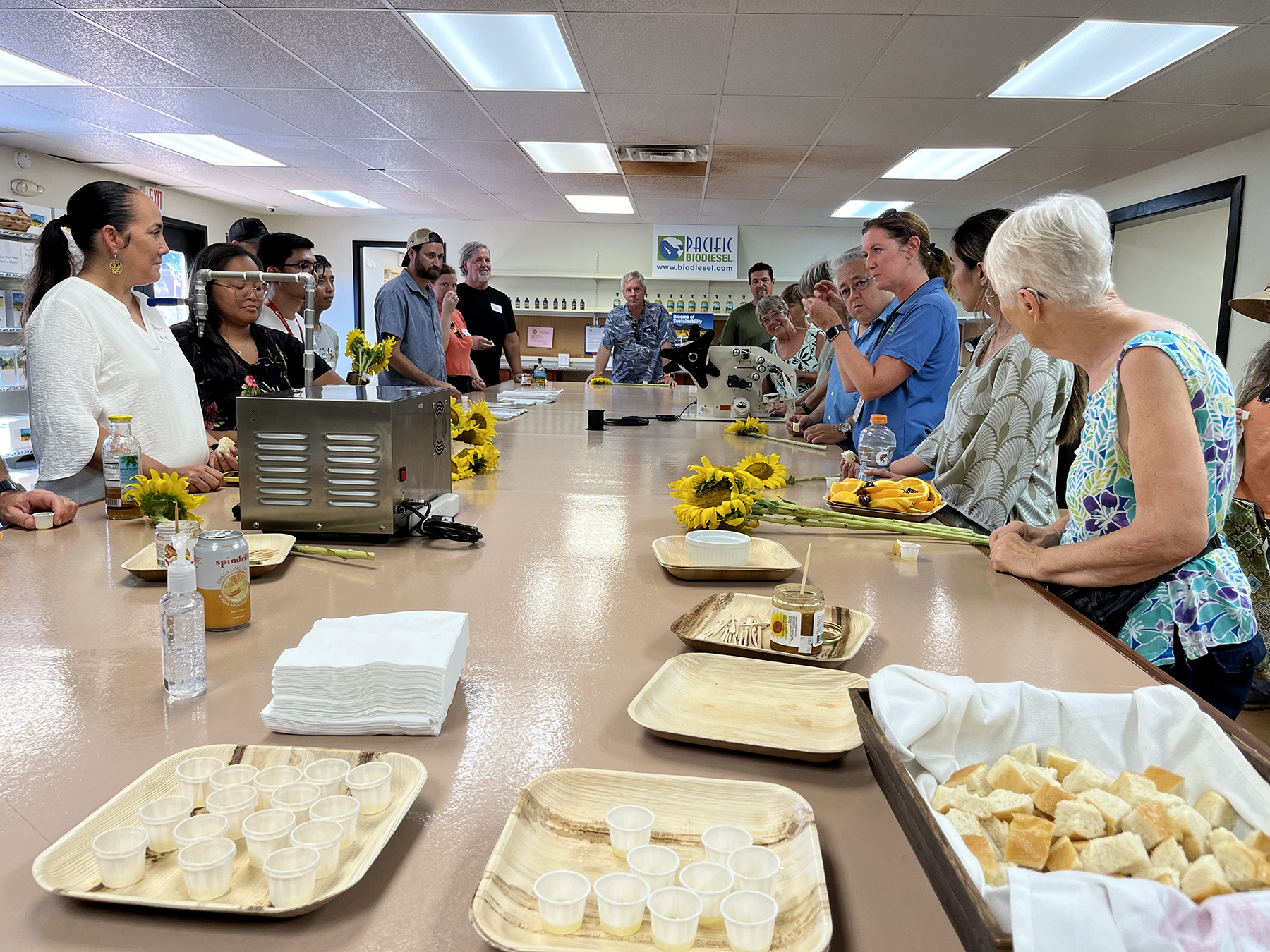
Pacific Biodiesel Marketing Director Joy Galatro conducts a tasting of the companyʻs premium Sunflower Oil.
During the tour of the crushing mill, Twigg-Smith explained how the expeller press physically crushes the seeds to produce the oil, a natural production process. Unlike conventional oil processing, this retains the natural flavor, aroma and color of the oil. During the tours, guests were treated to a tasting of the current batch of Maiden Hawaii Natural’s Sunflower Oil from seeds harvested from the farm on Maui. Slow Island Food & Beverage Company owner Gida Snyder also offered samples of Chili Crunch, a tasty condiment she produces that incorporates the sunflower oil.
Pacific Biodiesel’s expansion of agriculture operations to Kauaʻi announced earlier this year is part of a federally funded project to develop a model for regenerative agriculture-based biofuel produced in Hawaii from multiple locally grown oilseed cover crops in rotation with other food and fuel crops. The project’s model will include expanded production of culinary oils and other value-added food products, meal for animal feed, biodiesel, and co-products from biodiesel production such as glycerin and potassium salt-cake, which can be used as non-petroleum fertilizer for local agriculture.
“Every step we take opens more doors and we can see a lot more potential,” noted Pacific Biodiesel Director of Operations Jenna Long. “I think we’re going to continue to exponentially see more pathways to make a difference in our community.”
- During the July 12 tours, company Co-founder Kelly King informed attendees about Pacific Biodieselʻs history and its efforts to bolster Hawaiiʻs energy security.
- Kauaʻi Mayor Derek Kawakami and Pacific Biodiesel’s Bob King at the company’s sunflower field.
- Attendees take photos from the school bus as Marketing Director Joy Galatro points out the approaching sunflower field.
- Guests on each tour had the opportunity to visit the blooming fields for selfies and a group shot.
- Pacific Biodiesel’s Marketing Director Joy Galatro holds up a sample of a dried sunflower ready for harvest.
- Guests inspect a sunflower bloom with hundreds of small florets, one on each sunflower seed.
- Pacific Biodiesel Founders Bob and Kelly King surrounded by their company’s first sunflower blooms on Kauaʻi.
- Pacific Biodiesel team members stop for a photo by the seed silos and biodiesel-fueled tractor. Left to right are Controller Jan Alejandro, Director of Operations Jenna Long and Hawaii Island Plant Manager Al Leung.
